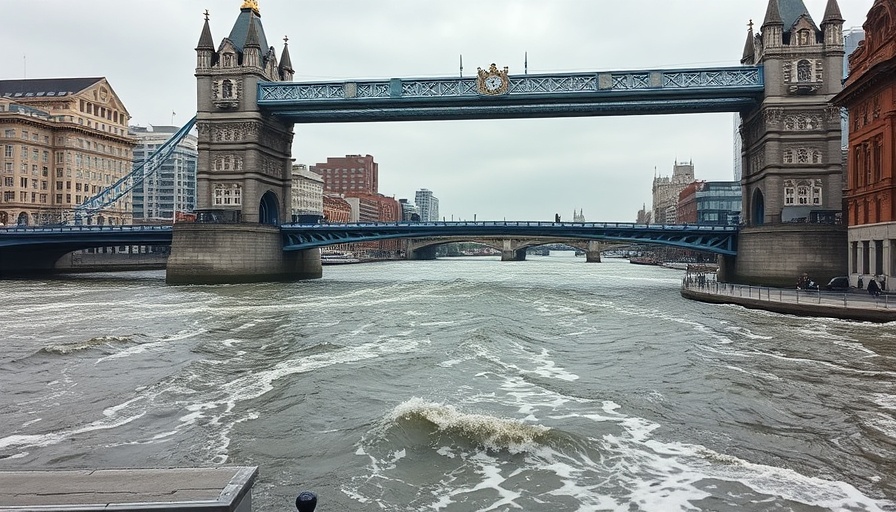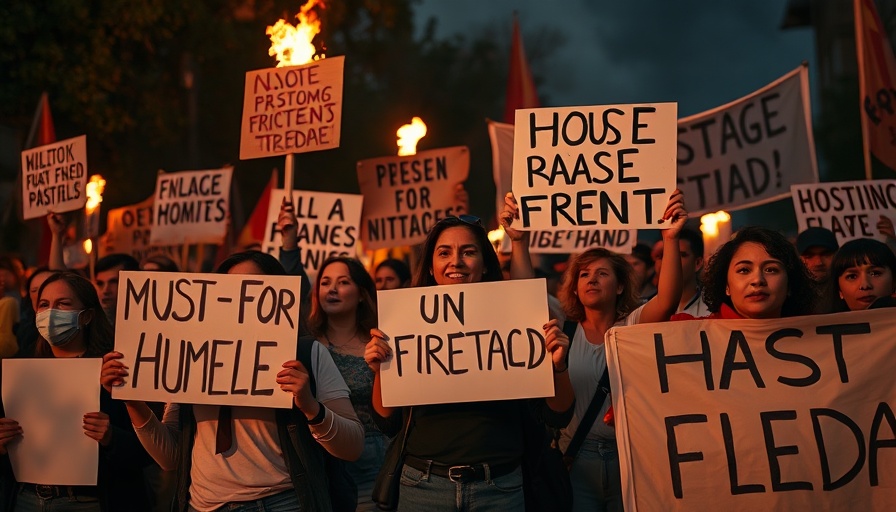
Red Alerts Across Florence and Pisa: A Community on Edge
The streets of Florence and Pisa, historical gems of Italy, are grappling with a pressing environmental crisis as red alerts for flooding and landslides have been issued in response to torrential rain that has plagued Tuscany and Emilia-Romagna. With local authorities urging residents to exercise extreme caution, the situation highlights not just a current disaster but a looming challenge linked to climate change.
Recent Flooding Events and Community Resilience
This recent deluge comes on the heels of catastrophic floods that hit Northern Italy previously, especially in September 2024, when over a thousand people were forced to evacuate due to severe storms. Tuscany's president has mobilized rescue services, emphasizing an immediate need for vigilance against potential landslides and flash floods, especially after heavy rains have saturated the ground.
Indeed, landslides were reported Thursday evening in Bologna, leading to evacuations, and a family of four had to be rescued in Badia Prataglia, underscoring the risks communities face during such extreme weather conditions.
Importance of Flood Defense Mechanisms
In response to rising water levels, flood defenses are being rapidly erected along the Arno River in Pisa. Authorities are taking preventive measures as the river surpasses initial flood-risk levels, demonstrating a proactive approach to mitigating potential damage. However, the impact of climate change is palpable; scientists emphasize that warmer global temperatures lead to increased rainfall, exacerbating flooding events like those currently unfolding.
Challenging Times for local Businesses and Communities
Many roads in Florence were affected, and schools in over 60 municipalities, along with several campuses of the University of Florence, were shut down in anticipation of the worst. The local economy, often reliant on tourism and hospitality, now faces challenges as flooding disrupts transport and poses uncertainties for both residents and businesses alike.
As the National Fire Brigade addresses flooding complaints, the psychological toll and disruption for affected families are significant. Local communities are reminded of past catastrophes, like those witnessed in 2022, which caused multiple casualties and extensive damage.
Looking to the Future: Climate Change and Italy's Vulnerability
Experts warn that Italy, especially the Mediterranean region, is facing the dire consequences of climate change, with increasingly erratic weather patterns and destructive flooding. This poses a dual threat, not only to infrastructure but also to the luxury goods industry that is integral to the Italian economy. Brands and manufacturers must now reevaluate their strategies, potentially facing significant supply chain disruptions due to climate-induced challenges forced upon them.
As communities band together and local governments take proactive measures, there lies a crucial opportunity for residents, businesses, and policymakers alike to address not just the immediate effects of flooding, but also the underlying environmental challenges that threaten their future.
 Add Row
Add Row  Add Element
Add Element 



Write A Comment